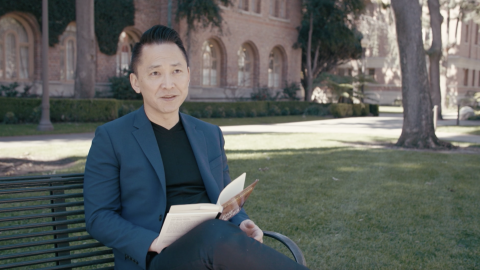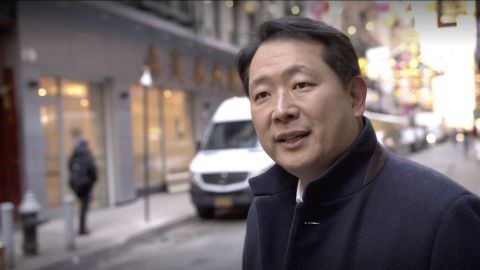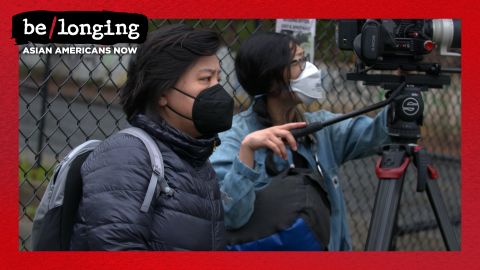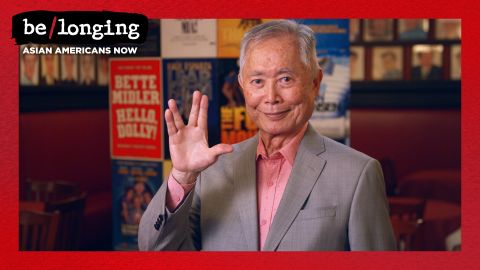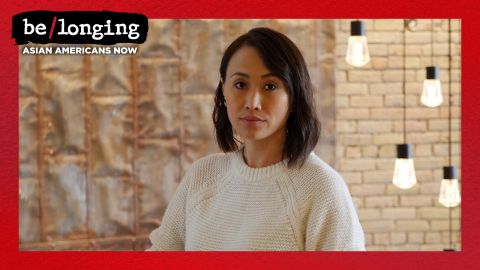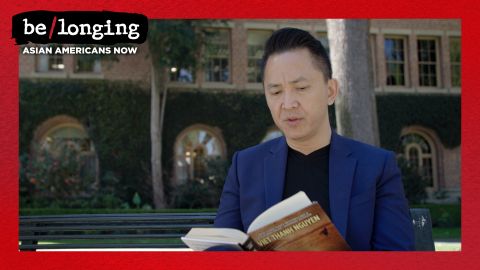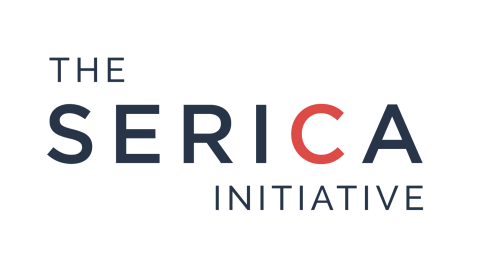Richard Park: I attend a church in Queens. I still every Sunday see my parents’ generation that raised me. They’re still working in the fish store, they’re still working in the dry cleaners, they’re still doing all of those things. They could not have possibly imagined that many of their kids would become professionals. They’d go to medical school, become engineers, teachers and finance people. They couldn’t have possibly understood that. It’s upon their backs that we were able to do this.
I am Richard Park. I spent 10 years in the E.R., roughly 10 years doing urgent care, founding and leading a company called City M.D. here in New York. And, to this next chapter, I am the CEO of Render Physicians.
In Seon Hwang: Richard and I have known each other for almost 30 years now. We grew up in inner city, difficult neighborhoods and you know, our parents didn’t speak great English. We had a tough time adjusting, fitting in and navigating. So, serving vulnerable and disadvantaged populations is personal to both Rich and myself.
Richard Park: If there’s a theme to everything we do, it’s about how do we un-marginalize people, people that feel like they don’t fit in, that they don’t deserve anything, that they don’t deserve better… How do we reverse that?
In Seon Hwang: I remember being bullied. And I didn’t know what they were saying. You don’t have to understand the words to know when you’re not respected, when you’re demeaned, when you’re not accepted, when you’re not treated as somebody who belongs here.
Richard Park: Through a good friend, I got to meet these Chinese doctors, and, I felt like I belonged. I don’t know how else to explain it: I felt like I belonged. That entire theme of marginalization, even having done reasonably well, that never leaves you. So I fell in love with the doctors. I fell in love with the community, and the patients.
Dr. Yi-Ming Yang: Many immigrant patients face tremendous difficulty in getting appropriate and adequate care in this country. Part of it is because there are different language skills and there are different cultural backgrounds and there are different cultural beliefs.
Nina Wan: Chinese doctors, they understand me more. And the culture. I just use my own words to explain to the doctor, and the doctor will use our language; that’s MY language, to explain to me the medical terms.
Richard Park: No, you’re not invisible to us. No, you do deserve care. Yes, you deserve NOT to be marginalized. You deserve to be part of society. My mom was that person. My parents are grateful to be even second-class citizens in this great country, as opposed to those of us that were born here like we’re Americans. What are you talking about? I ate the same macaroni and cheese and frankfurters in the school lunch as you did. Why should I be treated any different?
Nina Wan: You see so many like issues, recently. They’re pushing people in the track, so, I just worry. I feel very angry because we are people. We are the same human; so we should love each other.
Dr. Anthony Tam: Many of my patients are concerned about the rise in anti-Asian sentiment, and acts of discrimination against Asians and attacks on Asians.
Nowadays, they tend to just stay within their local neighborhood. I know a lot of them avoid taking the train because they’re afraid of potential attacks. And some of them don’t even leave their home, and this has a detrimental effect on their health. They don’t exercise. Their mental health isn’t as good either.
Richard Park: Yeah, we are afraid. We have friends and family that are afraid to go out on their own, right. They’re afraid to take the subways. There was a 35 year old young woman in Chinatown that was attacked and stabbed to death. This has a terrible impact on our psyche. It wants you to recede, right? It doesn’t want you to advocate. It wants you to recede. That has an impact and we have to do better.
When I see this neighbor, the people here, I appreciate the lives they live. As immigrants, working one, two, three jobs. And the endurance and the perseverance to go on, living for their children, really. You can’t help but respect and honor and want to care for these people.

